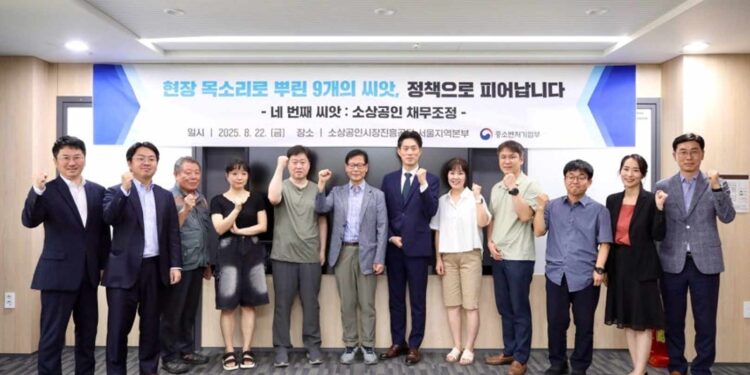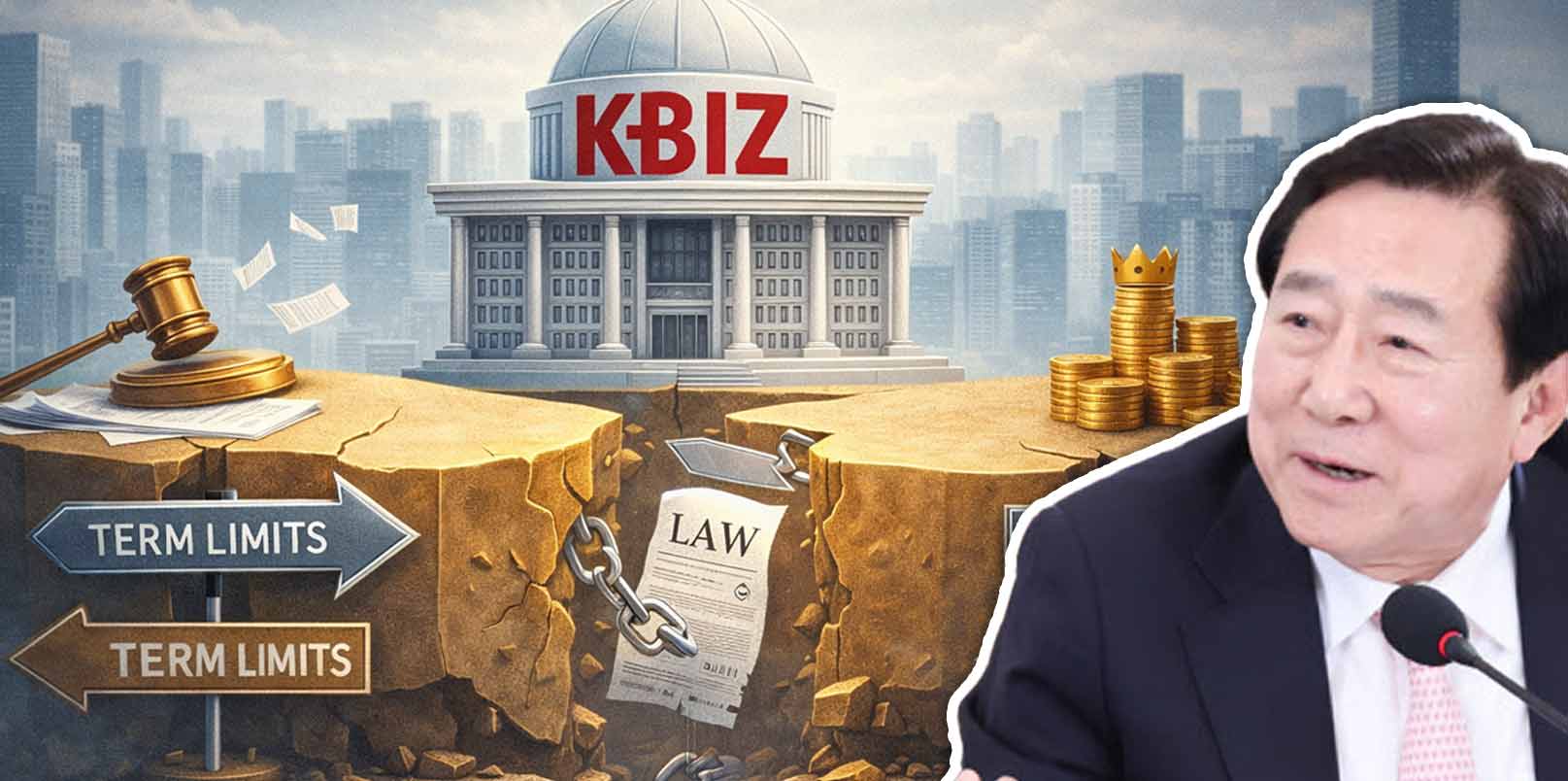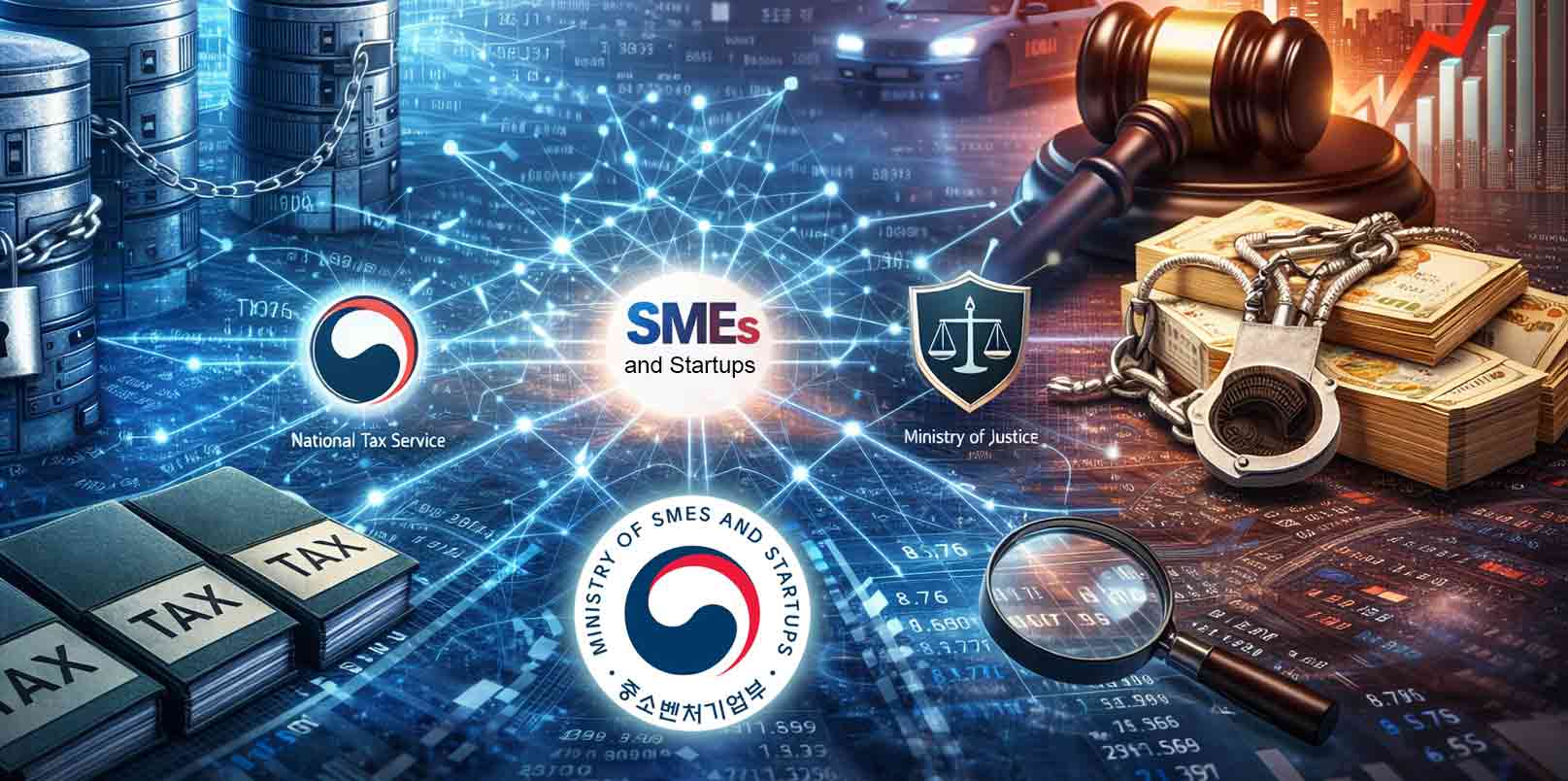Korea is moving to overhaul how small business debt is managed, ending the long-standing practice of extending virtually uncollectible loans. The new SME debt reform by Ministry of SMEs and Startups’ aims to restore credit soundness, cut inefficiencies, and give entrepreneurs a genuine path to recovery. The move also signals that Korea is reinforcing the financial backbone of its startup ecosystem, a shift that could strengthen market stability and investor confidence.
Korea Ends Indiscriminate Loan Statute Extensions with SME Debt Reform Policies
The Ministry of SMEs and Startups (MSS) has announced a major policy shift in the handling of small business debt, ending the long-standing practice of automatically extending statutes of limitation on loans deemed virtually uncollectible.
The reform, unveiled at the 4th Roundtable on Small Business Recovery and Safety Net Enhancement in Seoul on August 22, 2025, aims to strengthen credit soundness, eliminate inefficiencies in debt management, and support faster recovery for entrepreneurs facing prolonged financial strain.
Under the new framework, so-called special debts—policy loans classified as effectively uncollectible—will no longer receive automatic extensions.
Instead, each case will be reviewed individually, considering the debtor’s assets and recovery prospects. For discharged debts, where no financial benefit remains, statute extensions will be discontinued altogether.
Risk Management Oversight and Policy Safeguards
To ensure fairness and avoid moral hazard, the ministry will establish a Risk Management Committee comprising external experts such as lawyers and finance professionals. This committee will oversee extension reviews to guarantee transparency and professionalism in decision-making.
From 2026, debts whose statutes of limitation have fully expired will be written off, improving balance sheet soundness for creditors while freeing debtors from prolonged collection pressures.
According to MSS estimates, about 100 cases, with amounts ranging between ₩1 billion and ₩2 billion (approximately $740,000–1.48 million), will be subject to review in 2026. Officials cautioned that the volume may rise if Korea’s domestic downturn persists.
Vice Minister Noh Yong-seok emphasized:
“This decision to suspend statute extensions will provide small business owners and the self-employed with a chance to recover and a firm foundation to start again.”
Concerns Over Timing of Recovery Assessments of the SME Debt Reform
While the policy is welcomed as a step toward easing long-term debt distress, experts flagged the need for earlier intervention.
Attorney Park Ok, a startup-focused lawyer, noted:
“For long-term delinquent debts, waiting until the statute expires (five years) weakens the purpose of quick relief. If certain conditions such as business closure occur, recovery prospects can already be assessed immediately.”
Debt Relief and SME Voices from the Field
At the roundtable, small business owners also pressed the government to unify scattered loan support channels.
One former PC café owner shared:
“After closing my business, I wasted time visiting multiple agencies just to figure out loan options. A unified channel would make it easier to identify the most suitable support.”
Officials confirmed that discussions with the Financial Services Commission are underway to consolidate loan service windows.
Beyond SME Debt Reform: Additional Support Measures
The ministry also announced enhancements to the Hope Return Package, including short, intensive employment training courses and expanded outreach through YouTube, television, and portal platforms.
Separately, MSS presented results from a satisfaction survey on the COVID-19 Special Installment Repayment Support Program. Over 90% of beneficiaries reported high satisfaction, citing:
- 99.5% satisfaction with repayment period extensions,
- 97.2% with interest rate reductions,
- 96.6% with lower monthly repayment burdens.
Simplified online applications and loan account integration also received positive evaluations, with 98.9% noting reduced delinquency risk from fixed due dates and amounts.
Vice Minister Noh Yong-seok said,
“The COVID-19 support program announced at our first roundtable has achieved very high satisfaction in the field. Today’s decision to halt statute extensions should also provide small business owners and the self-employed with both breathing room and a foundation to restart.”
Strengthening Credit, Recovery, and Potential Confidence of Investors
For Korea’s startup and SME ecosystem, the reform aims to correct long-standing inefficiencies that fueled the growth of non-performing loans.
By introducing structured oversight and ending automatic extensions, the government is signaling stronger financial discipline while creating more practical recovery pathways for entrepreneurs.
Hence, Korea’s SME debt reform is expected to:
- Improve SME credit soundness, restoring confidence in financial transactions.
- Reduce the backlog of non-performing loans that distort credit markets.
- Potentially strengthen investor trust in Korea’s financial governance and SME policy reform.
- Offer entrepreneurs more realistic opportunities for recovery, reinforcing the resilience of Korea’s startup ecosystem.
Deputy Minister Noh emphasized that the relay roundtables are not symbolic discussions but working platforms. Feedback from entrepreneurs is being integrated into each session, tightening the link between policymaking and on-the-ground needs.
🤝 Looking to connect with verified Korean companies building globally?
Explore curated company profiles and request direct introductions through beSUCCESS Connect.
– Stay Ahead in Korea’s Startup Scene –
Get real-time insights, funding updates, and policy shifts shaping Korea’s innovation ecosystem.
➡️ Follow KoreaTechDesk on LinkedIn, X (Twitter), Threads, Bluesky, Telegram, Facebook, and WhatsApp Channel.





